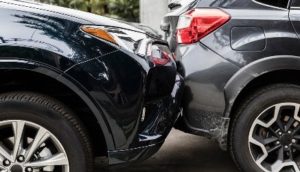New Trial Granted Because Judge Improperly Denied Cause Challenge
May 11, 2021

Last week, the Third District Court of Appeal granted a new trial in an auto crash case where the trial court improperly denied the Plaintiff’s cause challenge against a juror who expressed impartiality. In Rivas v. Sandoval, ___ So. 3d ___ (2021), during jury selection the Plaintiff’s counsel questioned the venire about personal experiences with car crashes. One juror stated both he and his son had been in a similar situation and both were previously sued as Defendants in a car crash case. He further stated the Plaintiff in his case was never taken to the hospital and that he did not believe that Plaintiff was entitled to his $100,000 insurance policy limits. Moreover, he stated a lawyer threatened to put a lien on his house if he refused to pay the insurance limits. Based on this information, Plaintiff’s counsel directly asked this juror if this was a case “where you can’t be fair and impartial and look at both cases equally . . .” to which the juror responded “Yes.” In a follow up question, the juror also stated that he can be open minded because every case is different.
At the conclusion of jury selection Plaintiff’s counsel moved to exclude this juror for cause. The trial judge denied the cause challenge. Plaintiff later used a peremptory challenge on this juror and also asked the court for an additional peremptory challenge because the court previously denied the cause challenge on the same juror. The trial court also denied this request. The Plaintiff ultimately agreed to the jury panel, but made his objection on the record stating which juror he would have used his additional peremptory challenge on had the court granted his prior cause challenge. (Note, the Third District Court of Appeal, in a footnote, applauded Plaintiff’s counsel for following the proper procedure to preserve this issue for appellate review).
Plaintiff appealed and the Third District Court of Appeal held it was error not to grant the cause challenge on this juror. The Court stated, “Juror five’s answers to questions from [Plaintiff’s] counsel evinced a bias which called into question his ability to ‘render an impartial verdict based solely on the evidence submitted and the law announced at the trial.’” The Court further held that the juror specifically “stated his previously experience made it difficult to remain impartial in his evaluation of the facts and evidence in this case.”
Importantly, the Court rejected Defendant’s argument that the juror was “rehabilitated” when he stated he could keep an open mind. The Court held, “where a juror ‘clearly expressed his negative feelings’ about a similar type of claim or a similar type of plaintiff, a later expression that the juror can be fair is ‘insufficient to indicate unequivocally that he [can] set aside his feelings and be fair and impartial in this case.’”
Thus, this case presents two important lessons. First, as always, it is critical that attorneys know the proper procedure to follow when a cause challenge is denied. Second, one must be careful when attempting to rehabilitate a juror who has already clearly expressed negative feelings about a similar claim or similar type of plaintiff, as this type of rehabilitation may not be possible.
(This post was prepared by Kimberly L. Wald, Esq. Kim is a trial attorney at the Kelley|Uustal Law Firm in Fort Lauderdale, FL. For more information, please contact Kim at klw@kulaw.com).
